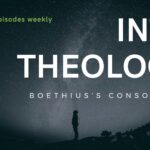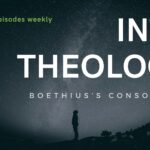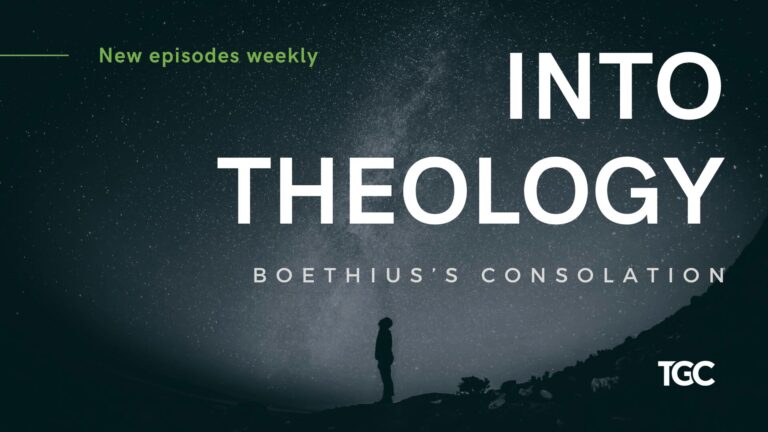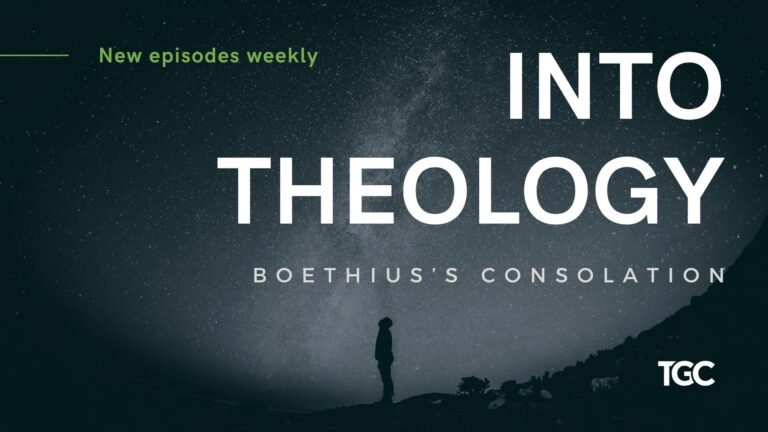During the COVID-19 pandemic, Christians found themselves disagreeing with each other. Some wanted masks. Others didn’t. Some disliked restrictions; others liked them. I do not even have to mention the specifics about vaccines. Opinions differed here as well.
Most saw these disagreements as matters of conscience. Differences about masks, restrictions, and vaccines were understood to be disputable matters. Even so, that didn’t then and doesn’t now make living with such differences easy.
And on top of this, passages like Romans 14:23—“For whatever does not proceed from faith is sin”—complicate the picture. I am sure some believed that their faith required no masks while their congregation in general thought they were a good idea.
How can we figure all this out? How should Christians disagree when their consciences are divided?
That’s a tough problem, one that Paul dealt with when he wrote to the Romans. Paul tells us in Romans 14 (and elsewhere) that Christians differed on matters of food and festivals. And the wisdom he shares there, I believe, will not only help us reflect on our past differences but also prepare us to disagree well with each other in the future.
In this article, I want to show how Romans 14 can help us to disagree well so that we can avoid some of the bitter disagreements that occurred during the COVID-19 pandemic. I will conclude the following:
- Our consciences cannot be bound by our opinions.
- The weak wrongly let their consciences be bound by their opinions.
- The strong can voluntarily restrict their freedom for the sake of the weak, even though no earthly power can bind their conscience.
I’ll show how this works practically by talking about masks, vaccines, vaccine passports, and religious exemption forms near the end of the article.
What Is Romans 14 about?
What is Romans 14 all about? And how does Romans 14 lead to the above three conclusions? That will take a bit of interpretive work.
As a guide to Romans 14, I have generally followed the comments of the reformed theologian John Calvin.[1] He was a good Bible reader, and he knew about Christian conflict. In fact, his whole ministry might be described as one of conflict from within Geneva and without. He had to learn how to apply Romans 14 to the nitty-gritty disagreements in life.
So here, I follow his basic approach to Romans 14 because it’s both truthful to the text and because Calvin reads Romans 14 with an eye to working out conflicts within the church.
To sum up the whole passage, Paul in Romans 14:1–15:7 tells the Roman Christians to welcome each other because both Jewish and Gentile Christians have access to the kingdom of God by the Holy Spirit. They should not quibble over “opinions” like what to eat, what to drink, and what days to celebrate (Rom 14:1; the whole passage).[2]
Some Jewish Christians in Rome were “weak in faith” (Rom 14:1) because they did not realize their freedom from Jewish customs regarding food, drink, and festivals (Rom 14:14).
That weakness meant they wrongly believed that these things could bind their conscience. Food, drink, and days cannot bind one’s conscience before God because the kingdom of God is not in these things but consists of peace, joy, and righteousness in the Spirit (Rom 14:17). (To learn more about the conscience, see this article).
The strong in faith by contrast know they can eat what they want or celebrate any day they want (Rom 14:22). The Kingdom is Spiritual (Rom 14:17). But precisely because they are strong, they bear with the weak whose conscience, whose faith, whose convictions still tie to things like food, drink, and days (Rom 14:23–15:1).
Paul contrasts those who can freely eat as they like with those weak in faith when he says: “But whoever has doubts is condemned if he eats, because the eating is not from faith. For whatever does not proceed from faith is sin” (Rom 14:23). The faith here is the weak faith of Romans 14:1.
If someone feels conscience-bound to certain days, foods, and drinks, then the strong should bear the weak (Rom 15:1) whose acts are matters of opinion, to cite Paul’s language from Romans 14:1.
Opinions are matters of indifference. While they are not matters of God’s kingdom in the Spirit (Rom 14:17), we can be gracious when to people who think they have to practice such things.
As Paul says, we need to be “fully convinced in his [our] mind” (Rom 14:5). And if we are not fully convinced that we can eat and drink any food or celebrate any day like another, then this faith should be kept in check until we can gain strength, the confidence to realize our freedom from these matters.
This is what Paul means when he says, “whatever does not proceed from faith is sin” (Rom 14:23). It is because, “whoever has doubts is condemned if he eats, because the eating is not from faith.” That doubt comes from not feeling convinced (Rom 14:5) that we have freedom in Christ to eat anything we want, though we do as Paul clearly maintains (Rom 14:14).
Romans 14 centres on welcoming one another in Christ (Rom 14:1; 15:7) even if we differ on important opinions: “As for the one who is weak in faith, welcome him, but not to quarrel over opinions” (Rom 14:1). Some feel bound to those opinions; others do not because they realize their freedom in Christ.
Even so, the strong (the free) should bear the weakness of those who, in context, still want to maintain their Jewish customs. That is okay because they do not bear on salvation (Rom 14:17).
How Does this help us with Masks, Vaccine Passports, and Future Conflicts?
I think it has much to say, but maybe indirectly. I argued elsewhere that the conscience judges between God and humans. The conscience’s proper theological sense is to accuse or excuse us before God (Rom 2:15). Since God is our judge and Lord (Rom 14:4), then our conscience rises and falls before him.
God justifies us freely by faith in Christ, and so our conscience before him is free. No earthly power can bind it. No government can bind our conscience (see this article). That means neither food, nor drink, nor days, nor masks, nor vaccine passports, nor any earthly power can bind our consciences.
Now, we might think they do. And even if we do, we should be ready to admit that such matters are not matters of the kingdom of God. Paul defines matters of the kingdom as “righteousness and peace and joy in the Holy Spirit” (Rom 14:17). For this reason, we can accept each other in Christ since both have the same Lord in the kingdom of God despite these real differences of opinion.
But that does not mean every conscience has equal weight. For example, some believed that government mandates and restrictions could bind their conscience. Assuming for the sake of argument that such matters cannot bind the conscience, then those who saw themselves as strong should have borne with the weak, even if they disagreed with their opinions.
This part, I think, probably makes sense to most. Taking the actual vaccine is more complicated. Someone might believe there is too tight a connection to abortion in the process of making the vaccine. To take it would conflict with their view of the sanctity of life. A pastor may disagree here but should be understanding and sympathetic.
Should pastors have signed religious exemption forms? Well, I believe we should give space for pastoral wisdom here. Still, my opinion on the matter is this: pastors should not have signed this form if (and only if) the form required one to say that not getting the vaccine is part of the Christian religion.
I do not see how that is true. After all, “the kingdom of God is not a matter of [vaccinating] and [masking] but of righteousness and peace and joy in the Holy Spirit” (Rom 14:17). And Christians have received vaccines of all sorts for many years.
On the other hand, if someone’s conscience had told them not to take a vaccine, they should not have done so because: “… whoever has doubts is condemned if he [vaccinates], because the [vaccinating] is not from faith. For whatever does not proceed from faith is sin” (Rom 14:23).
Conclusion
There is, then, I think a biblical line of reasoning that makes its way through Romans 14 which allows us to welcome one another as Christ welcomes us even when disagreeing on important “opinions” (Rom 14:1).
Most COVID-19 disagreements have come and gone, but we know that new conflicts will arise. When that happens, we must distinguish between opinions and the kingdom of God.
The real question is not one of opinion but of the nature of the Kingdom of God. And we must agree with Paul that the kingdom does not consist in these matters of indifference or opinions “but of righteousness and peace and joy in the Holy Spirit” (Rom 14:17).
Obviously, there will be some overlap between the kingdom and external acts as when the three young men obeyed Nebuchadnezzar’s command to gather at the plains of Dura in front of his statue (Dan 3). But they could not obey farther—they could not bow down because that bowing would signify worship of an idol.
The point is that on most matters we can disagree since they are about opinions or matters of dispute. We each have the same Lord. We each are part of the kingdom, the body of Christ, in the Spirit.
Those on either side of the above issues probably see themselves as the strong in faith.
Great!
Because the point is the same: “We who are strong have an obligation to bear with the failings of the weak, and not to please ourselves” (Rom 15:1) and “Therefore welcome one another as Christ has welcomed you, for the glory of God” (Rom 15:7).
Whether I am right or you are right, let’s embrace this obligation and welcome each other as Christ welcomes us, not to argue over opinions, but to glory in God.
[1] See John Calvin’s commentary on Romans.
[2] Bird notes how the entire passage begins and ends with the idea of welcome (Rom 14:1 and 15:7). See Romans, 465.












